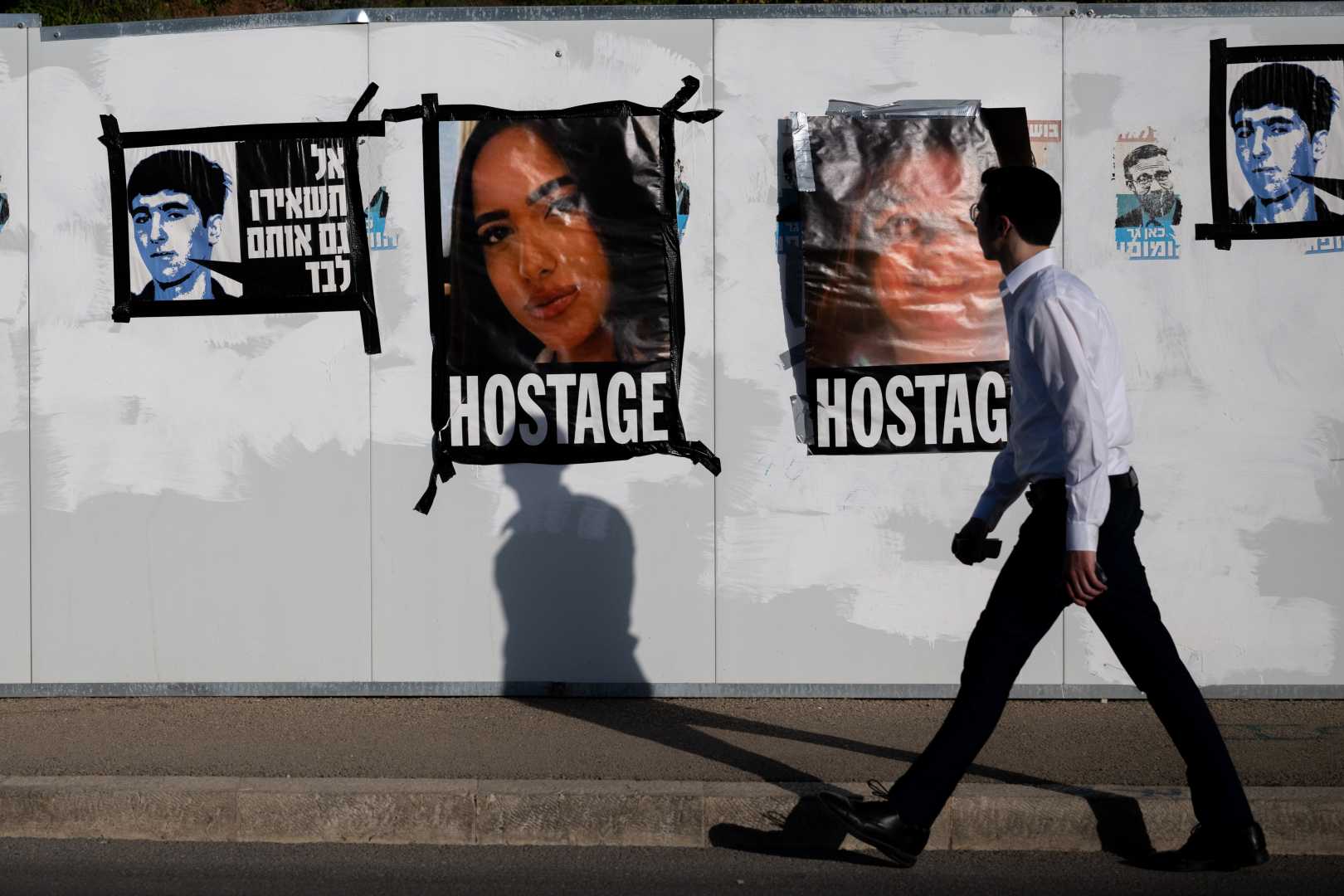World
Hamas Set to Release Three Israeli Hostages in Ceasefire Deal

JERUSALEM (AP) — Hamas announced the release of three Israeli hostages in a weekend exchange, signaling that a fragile ceasefire may hold despite recent tensions. The exchange will occur Saturday, with hostages Iair Horn, Sagui Dekel Chen, and Alexander (Sasha) Troufanov set to be freed in return for the release of over 300 Palestinian prisoners.
The three hostages were abducted during the tumultuous Hamas-led attack on October 7, 2023, which initiated a significant conflict that has since claimed thousands of lives. Under the ceasefire, which commenced on January 21, Israel has released more than 730 Palestinian prisoners while managing to secure the release of 21 hostages to date.
The latest hostage exchange marks the sixth swap since the ceasefire began. However, the status of the ceasefire remains precarious. Hamas recently accused Israel of breaching the terms by not allowing adequate aid into Gaza, which includes essential supplies like shelters and medical equipment. In response, Israel indicated it could resume military operations unless hostages were released as scheduled.
According to a Hamas-linked prisoners’ advocacy group, 369 Palestinian prisoners are slated for release in this exchange. Notably, among these, 36 are serving life sentences.
Hamas confirmed that Iair Horn, a 46-year-old Israeli-Argentinian, Sagui Dekel Chen, 36, an Israeli-American, and 29-year-old Alexander Troufanov, an Israeli-Russian, were among those selected for release. The hostages were taken from Kibbutz Nir Oz, where a total of approximately 80 individuals were abducted on October 7 during the attack.
The experiences of the families reflect the emotional toll of captivity. Dekel Chen’s wife, Avital, was pregnant at the time of his capture; she has since welcomed their third daughter while he remains imprisoned. Troufanov was captured alongside his grandmother and mother, both of whom were previously released during a temporary ceasefire in November 2023. Troufanov’s father was killed in the initial attack.
Despite the ongoing exchanges, public anxiety is rising regarding the remaining hostages’ well-being. Keith Siegel, a 65-year-old man released last week, recounted severe mistreatment during his 484 days in captivity, stating he had been starved and tortured. His public plea to U.S. President Donald Trump highlighted the urgent need for a thorough resolution of the conflict.
The ongoing truce faces a significant challenge as it approaches its conclusion in early March. Currently, discussions regarding further negotiations for the second phase of hostage releases remain vague. Trump’s proposition for the relocation of Palestinian populations and his plan to oversee Gaza’s redevelopment have only added complexity to the situation.
Israeli authorities reported more than 48,000 Palestinian deaths since the outbreak of conflict, predominantly affecting women and children, as the Israeli military campaign ramped up in response to the initial attack. International human rights groups have raised concerns about the humanitarian situation in Gaza, which remains dire with substantial destruction and displacement.
As the hostages await their release, the threat of resumed fighting looms heavily, with Israeli leaders asserting they will react strongly if Hamas fails to comply with the agreed terms. With far fewer hostages left, Israel may be incentivized to pursue aggressive military options, potentially leading to further turmoil in the region.












